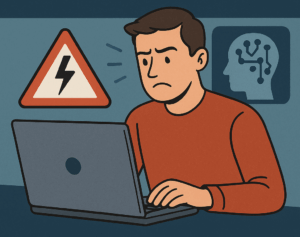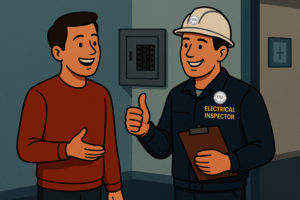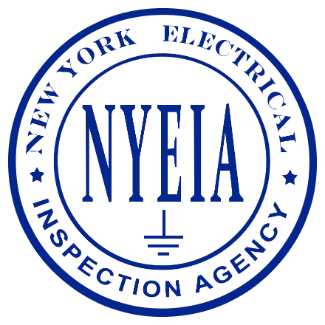In the age of instant answers and advanced technology, it’s tempting to type an electrical code question into a search engine or Artificial Intelligence (AI) chatbot and trust the first response you get. While the convenience is undeniable, the reliability of those answers is not guaranteed. In fact, in the world of electrical inspections and National Electrical Code (NEC) compliance, that quick answer might cost you thousands of dollars, and your professional reputation.
As someone deeply involved in electrical inspections for decades, I’ve seen an increasing number of failed inspections, contentious job site discussions, and heated phone calls that trace back to one root cause: reliance on inaccurate or incomplete information pulled from the internet, often via AI-generated responses.
The Problem with Online Code Research
Search engines and AI tools are designed to provide fast, readable, and confident-sounding responses. But they are not codebooks. They don’t always understand context, which code cycle your jurisdiction is on, and they often oversimplify, omit critical exceptions, or misinterpret technical language found in the NEC. The results are answers that might look correct but are fundamentally flawed when applied to a real-world job.
Some homeowners, contractors, and even electricians, have become more reliant on this digital shortcut. The problem? What seems like a fast and helpful response might skip over vital requirements, misquote or misapply code articles, or completely misrepresent NEC language. This may lead to improperly installed systems, failed inspections, rework, lost time, added expense, damaged credibility, or even worse such as injury or death.
“Trust but Verify” Is More Relevant Than Ever
The old saying “Trust but verify” is especially relevant in today’s AI-driven world. It’s okay to use the internet or AI as a starting point, but it should never be the final word, especially not when you’re dealing with something as technical and precise as the National Electrical Code.
I’ve personally reviewed countless AI responses to code questions, and more often than not, they are incorrect or dangerously incomplete. These answers may appear legitimate and are often written in a confident tone, but they lack the nuance, article references, and real-world application knowledge that a true professional or seasoned inspector brings to the table.
Real-World Consequences
The cost of relying on internet-generated answers can be steep. I’ve had job sites where installations had to be partially or fully redone due to incorrect interpretations of code pulled from an online search. Contractors may push back during the inspection, insisting their work is compliant, only to later admit that their understanding came from an AI chatbot or popular online forum, not from reading the NEC itself.
The result? Lost revenue, missed deadlines, frustrated homeowners, and a potential hit to a contractor’s reputation.
The Only Right Way: Read the NEC and Ask a Pro
There is no shortcut to code compliance. The only guaranteed correct answer is the one you get from the NEC itself. Read the article. Read the exceptions. Read the fine print. Understand how the article applies to your specific job.
If you’re unsure or need clarification, ask a professional electrical inspector. Inspectors are not only trained to interpret the code, they have real-world experience applying it to a wide range of installations. They can offer context and help you avoid costly mistakes before they happen.
Final Thought
Technology is a powerful tool, but it’s not a substitute for professional knowledge gained through hands-on training and a thorough understanding of the NEC. While AI and internet searches can be helpful for initial research, they are no replacement for attending professional development classes, reading the NEC in detail, and consulting with a qualified electrical inspector. In the field of electrical work, accuracy matters, and there’s no room for guesswork. The best way to ensure safe, code-compliant installations is to rely on the code itself and the expertise of those who are trained to interpret it.
When in doubt, go to the source. Read the National Electrical Code. Consult a professional. And always verify before you wire.
